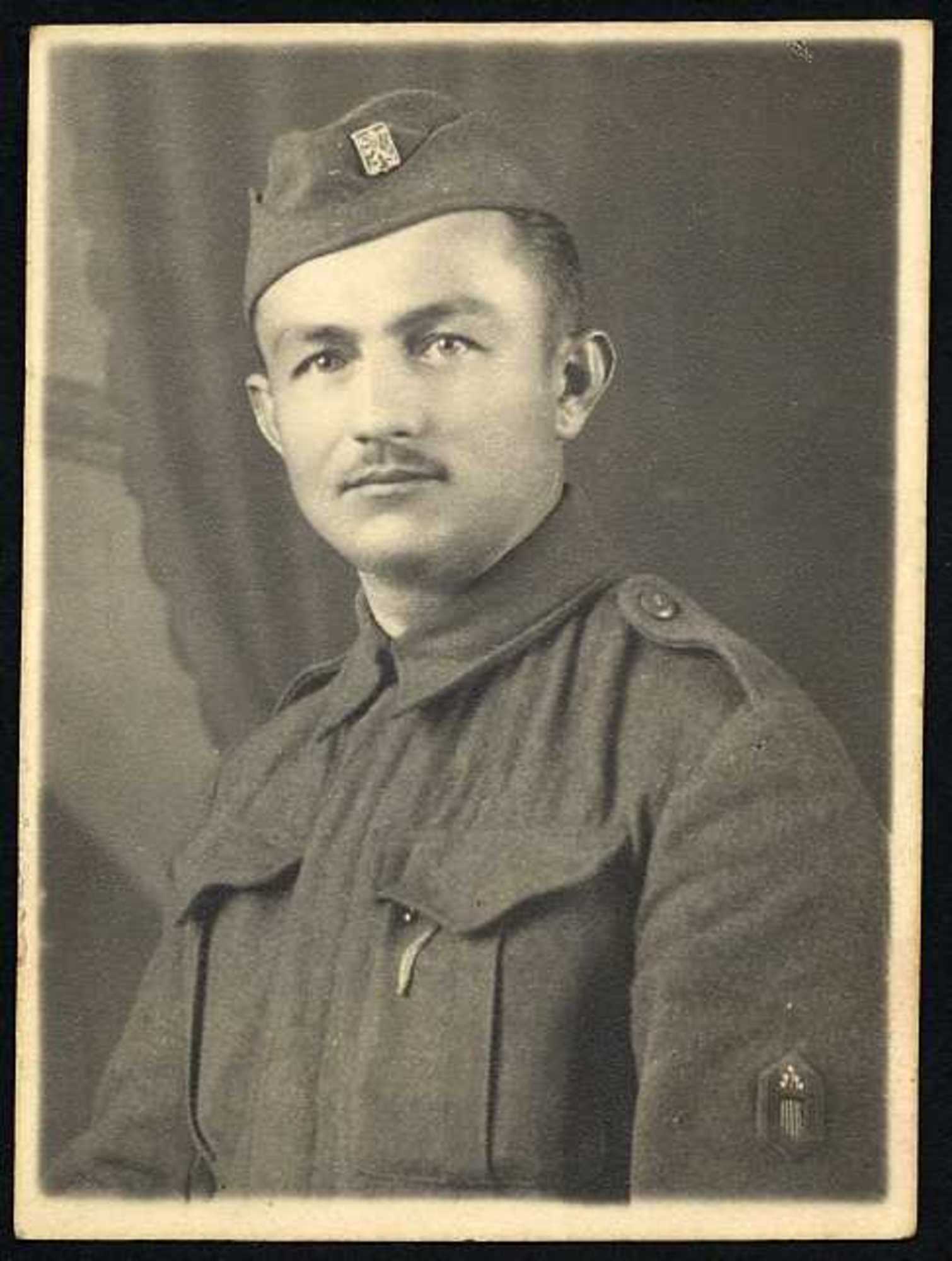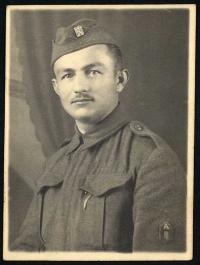“'Mine (my wife – author's note) with Dobruška slept at our neighbors' and I took a wheelbarrow – it was called just a barrow. I only went to the garden to cut some grass for our cattle. It was in summer. So I cut it, loaded it and when loading, some Germans went across our garden. They were as red as if you dyed them (tanned – author's note), sleeves up, they held pieces and were crossing our gardens like that. There was a chainlink fence there, they climbed over. They used to walk there, it used to be like that that they walked there." "And what did the Germans do there?" "Some kind of sentry. The Soviets ran down in the woods, state woods. And they weren't there (at the place where the German sentry was – author's note). So I fed the cattle and went home to shave. So I was shaving, I was already packing it all and all of a sudden they got out (the Russians - author's note), they went through the field. There were fields all around. Then the Soviets went against the Germans through the field. They came here to our barns and threw a grenade there. There were old machines there – they were outside because we were scared. They threw a grenade there, they came from behind around the barn. And as they threw the grenade there, then it exploded. When they started fighting, it was just terrible. There should have stood tanks there, when they started shooting us, our men, then all the barns burned down. They set the barns on fire, there were no piles left, nothing. And the cow barns, there were some cattle inside, they all died. The animals were shot through by machine guns as they shot from the tanks. Well, the tanks always came from there... And there was a tank driving just around my house. And when I heard it roaring I went to the cellar, there was a cellar in the house. I opened the hatch, it was a cellar built of stone, and I stayed there. All of a sudden, when the tank drove over, it was horrible to hear it." "He was driving over your head?" "Well, yes, he did. So I was scared, I smelt the smoke coming from the burning barns. The smoke was everywhere, we had a wooden cow barn and one built of stone. And there was one more stone cow barn built down among the trees, nothing happened there. And the wooden one burnt down, it was next to the house. And I was totally at my wit's end down in the cellar. I was thinking it was the end of the world. I had a kind of a little fur coat so I took it off and filled one vent with it but there was nothing to fill the second one with. And the smoke got inside. I thought I'd suffocate. I was looking around, I was climbing up and up and up the stairs. I slightly lifted the hatch up and I was peeping out. I saw smoke everywhere, the tanks were roaring, shooting around. It was frightful. As if you were throwing peas on the wall, it was such a rattling noise. The Soviets came from here, there were state woods here and they were in the woods. They came from the state woods here. They had machine guns, guns, nothing else. And just like that.”


